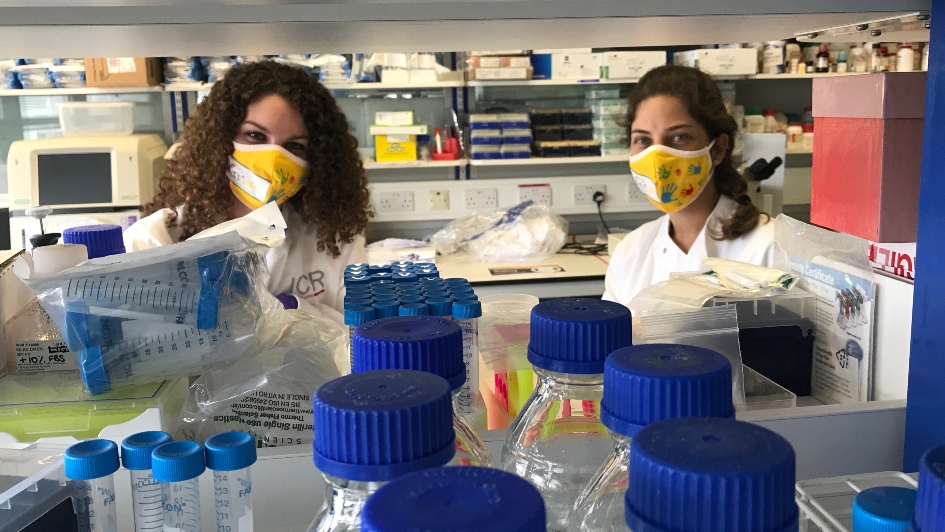
Although hugely challenging in many ways, the past 12 months have been something of a vindication for the UK’s life-science research.
UK-led research has played a huge part in the global response to the Covid-19 pandemic – most notably in the development of the Oxford-AstraZeneca Covid vaccine. Recent figures from the BioIndustry Association show that the UK biotech sector not only held up in 2020, but broke records for investment from the private sector.
UK biotech raised some £2.8bn, including £1.4bn from venture capital and £244m from initial public offerings (IPOs) either in London or New York. And that excludes Monte Rosa Therapeutics – a spin-out from science here at The Institute of Cancer Research, London, but now based in Boston – which announced $223m of funding over the past year.
The previous record for UK biotech investment was set in 2018 – after which I highlighted some of the reasons for the sector’s success. It’s interesting to look back now and see how these factors have also underpinned our relative success in research responding to the pandemic.
University-industry links
One major reason for the UK’s success in the life sciences – as much since the pandemic as ever – is the strength of our university sector. We punch well above our weight on the world stage, for our size as a country, and our academics are good at working with private enterprise. That has been exemplified by the University of Oxford and AstraZeneca partnership, which was evidently the product of many previous interactions.
In my previous blog, I also highlighted the close links between academia and our health service as an important UK strength. Here at the ICR, we can offer many great examples of collaboration between academics, health services and industry. One recent example is the start of a new phase I trial of EP0042, an experimental cancer drug discovered at the ICR which is now being received by patients at our partner hospital The Royal Marsden, following collaboration with drug development company Ellipses.
In the past year we’ve also made announcements about cancer drugs capivasertib – discovered following collaborative work between the ICR, Astex and AstraZeneca – fadriciclib, which we discovered in collaboration with Cyclacel, and several other industry-owned treatments undergoing trials led by ICR and Royal Marsden researchers.
Warning signs
Despite the apparent continuing success of our life sciences though, there are some warning signs.
One of our strengths, particularly in cancer research, is our charity sector – which in the UK plays a particularly central role in funding medical research. Covid has had a devastating impact on the charity sector, and the loss of donations is in turn affecting the funding of medical research organisations such as the ICR.
Our Chief Executive, Professor Paul Workman, has been in the news this month calling for more Government funding to help plug the gap caused by the loss of charity funding.
We’re grateful for the £4.2m we have received from UK Research and Innovation (UKRI), the Government’s funding body for UK science, as part of a funding boost for specialist institutions hit by a reduction in charity funding because of the pandemic.
But the ICR, along with the sector as a whole, needs more support to help ease the impact of the severe hit to charitable fundraising.
The ICR is a leading academic centre for partnership and collaboration with industry. You can learn about our latest work and opportunities to work with our scientists in our Connections newsletter.
Political challenges
More broadly, the wider political landscape also presents challenges for medical research. It is a relief that the Government seems now to have committed to funding the UK’s post-Brexit participation in the EU’s Horizon Europe scientific programme without raiding the science budget – but there remain concerns over whether the Government is ready to invest in research.
Even if the Government does meet its target of reaching 2.4 per cent of GDP in R&D investment by 2027, that could still represent a real-terms cut for UK science in the post-Covid world, when GDP is falling.
And with all the talk throughout the pandemic of being ‘led by the science’, I hope that we are not entering a future where political boundaries and funding disputes are going to prevail over co-operation, endeavour and scientific discovery.
I am also concerned by the potential impact of the UK’s departure from the EU on recruitment. The UK’s universities rely on an international community and must be protected from the possible effects of Brexit, particularly in their ability to recruit and retain the most talented people from across the world, and to collaborate across boundaries.
Learning lessons
Notwithstanding this, there is a lot for those of us working in UK life sciences to be positive about. The events of the past year – and the record-breaking figures for private investment – underline the strength of our partnerships, as well as our ability to move quickly to meet the grandest of challenges.
This ability to be innovative, agile and responsive to new opportunities is crucial to carrying out leading-edge science – and the past year has shown that those who can move most quickly are the most likely to succeed.
Being proactive
That’s where technology transfer professionals come in, working at the interface between academia and industry. The last year has shown us the importance of connections to rapidly form new partnerships and take them to new places.
For those of us working in a university environment, the past year has underlined the benefits to be found in being proactive – investigating what industry partners are interested in, rather than waiting for them to contact us.
Above all it will be up to us to continue to make the connections and join up to dots to allow our brilliant academics to translate their research in ever new and exciting ways.